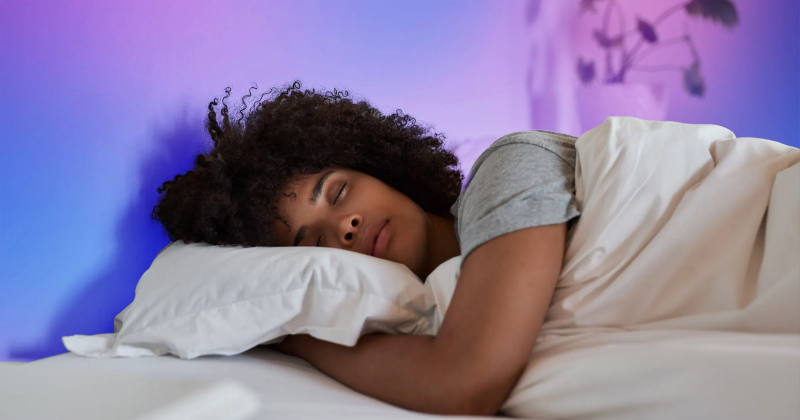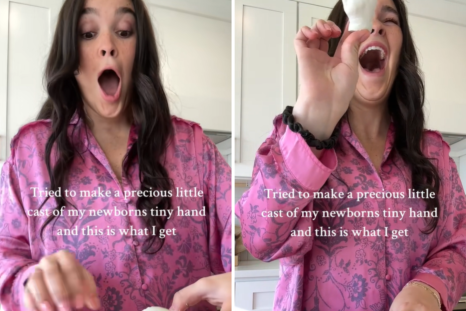
For some, sleep is an elusive beast that we attempt to lure with eye masks, white noise machines and black out blinds.
But for others, it’s as easy as closing your eyes.
No counting sheep necessary, slumber comes and you’re out for the count until morning… or even lunch time.
The NHS recommends that adults need between seven and nine hours of sleep a night.
And, while getting a lot of sleep is often applauded – after all, we know how important shut is for our physical and mental health – there is such a thing as too much sleep.
We spoke to a sleep expert about why you might be oversleeping – and what you can do to get into a good sleep routine.

A symptom of other health issues
Dr Lindsay Browning is a sleep expert at Trouble Sleeping, and author of the self-help sleep book Navigating Sleeplessness.
She says that regularly sleeping for more than nine hours could be a warning sign that you may be experiencing other health issues.
‘Excessive sleeping is often a symptom of depression,’ Dr Lindsay tells Metro.co.uk.
‘Also, people with chronic fatigue syndrome or hypothyroidism may find themselves feeling tired throughout the day, and so therefore may sleep for longer than recommended.’
You may also be dealing with sleep apnoea that you’re unaware of.
‘People with untreated sleep apnoea often have poor quality and disrupted sleep during the night,’ says Dr Lindsay. ‘They may sleep for more than nine hours per night and even take daytime naps.
‘Also, people with narcolepsy may find themselves falling asleep during the day.’

An increased risk of dangerous conditions
‘Regularly sleeping significantly more than nine hours a night is associated with an increased risk of negative health conditions such as heart disease, stroke and diabetes,’ Dr Lindsay says.
However, as Dr Lindsay explains, it’s not clear whether poor health leads to oversleeping, or vice versa.
‘We’re not sure if getting too much sleep causes poor health or whether people who are already experiencing poor health tend to sleep for longer,’ she says. ‘This is because people who are unwell tend to sleep more than people who are healthy.’
Lindsay also says that research suggests that oversleeping may also be associated with increased inflammation in the body.

How to adopt a good sleep routine
Dr Lindsay adds that everyone has individual sleep needs.
‘There are some people who simply need less sleep than seven hours a night and some people who may need more than nine hours,’ she says.
Certainly, professional athletes will need more than the recommended amount of sleep due to their active lifestyles.
To help get your body into a healthy sleep routine, Dr Lindsay says it’s important to practice good sleep hygiene.
‘This includes going to bed at a regular time and waking up at the same time every day, even on weekends, as well as getting bright sunshine exposure during the daytime – so go outside.
‘In addition, regular daytime physical activity and avoiding heavy meals, caffeine and alcohol right before bed can also help.’
When to seek help
‘You should consider seeking professional help if you are consistently sleeping for more than nine hours a night but still feeling tired,’ Dr Lindsay says.
More from Metro
-

Run clubs have become our new nightclubs – here’s why
‘You should also go to your GP if you find that your sleeping patterns are disrupting your ability to function during the day.’
Do you have a story to share?
Get in touch by emailing MetroLifestyleTeam@Metro.co.uk.
Sign up to our guide to what’s on in London, trusted reviews, brilliant offers and competitions. London’s best bits in your inbox
Disclaimer: The copyright of this article belongs to the original author. Reposting this article is solely for the purpose of information dissemination and does not constitute any investment advice. If there is any infringement, please contact us immediately. We will make corrections or deletions as necessary. Thank you.



